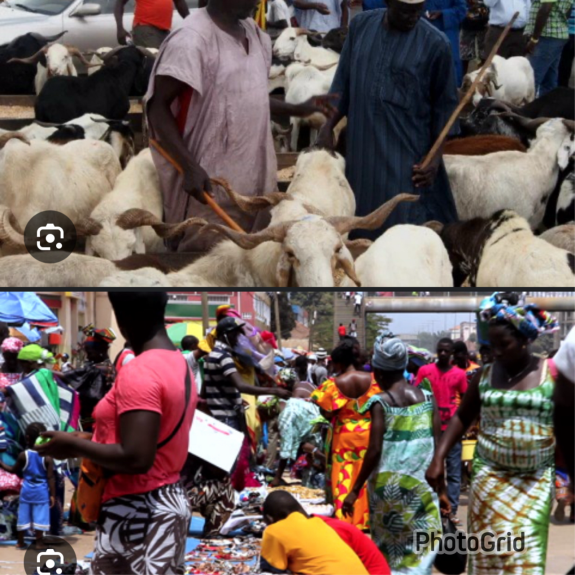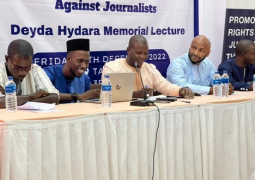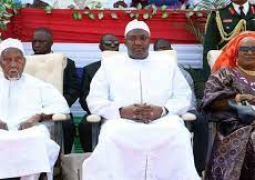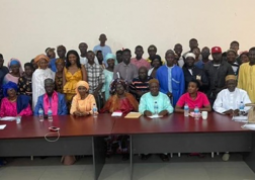
In Latriya village, Abdullahi Diallo reflected on the spiritual importance of Eid al-Adha, emphasising its roots in the Qur’anic story of Prophet Ebrahim and his son Isma’il. He believes the festival is a reminder of obedience, devotion, and gratitude. While the religious significance remains central to his celebration, Diallo noted that the rising prices of sacrificial rams are increasingly burdensome especially for lower-income families. Still, he remains grateful for what little he can provide, crediting his wife for her understanding and patience. He emphasises that Islam does not require believers to sacrifice beyond their means and cautioned against borrowing simply to meet social expectations.
In Talinding, Seedy Camara, a father of four, earning minimum wage, expressed concern about the pressure to meet both religious and cultural expectations. He noted that children’s clothes and accessories are more expensive than adults’, making it difficult to balance buying a ram with providing new outfits. Despite this, he and his wife prioritise their children’s happiness, often sacrificing their own needs to ensure the kids feel included.
Talinding resident Mariama Jallow, a single mother who sells fruits to support her family, described how prices for clothes and food spike during Eid. She says parents are expected to provide multiple outfits for their children across the three days of celebration - a demand many cannot meet. She calls on government and market authorities to help reduce costs and ease the burden on low-income earners.
In Brufut, mother-of-three Kaddy Sabally shared a mix of excitement and anxiety as Tobaski approaches. She explains how she tries to plan early by cleaning the home, saving small amounts, and buying food in advance to avoid last-minute stress. While she cherishes the spiritual and family aspects of the festival, Kaddy admitted that she couldn’t always afford new clothes for everyone. In some years, she manages something new for her children, but not for herself. Instead, she mends old clothes or buys secondhand items. Tailoring costs and fabric prices, she said, have also risen sharply. The pressure to appear presentable in front of extended family and neighbours adds an emotional weight to the financial stress.
This year, she doubts her family will be able to afford a ram. For her, choosing between food and sacrifice is heartbreaking, but she finds comfort in prayer and faith, believing that God understands their situation. Sometimes, they rely on help from relatives or simply focus on the communal aspects of the celebration.
In Yundum, Mariam Fofana described the extensive preparations her family undertakes each year purchasing clothes, a ram, food, drinks, and handling children’s grooming and home decoration. For her, Tobaski is a time of joy and gratitude, but it comes at a steep cost. With several children to care for, she estimated spending over D10,000 on fabric alone and up to D20,000 in total when including tailoring, shoes, and accessories. She noted that social pressure makes the financial burden heavier. Reusing old Tobaski clothes can lead to community gossip and peer bullying, so she does her best to ensure her children have something new to wear.
Fellow Yundum resident Nyama Leigh, a single mother, said she cannot afford new clothes for her children so soon after Koriteh, given the daily expenses of school, food, and transport. She recalled that past celebrations were easier thanks to support from extended family, but now, such help is rare due to widespread financial hardship.
Pa Ali Drammeh, a vendor at the Banjul Market, says the economic hardship in the country is clearly visible, even from behind the shop counter.
“Even we, as shop owners, can feel that people are really suffering,” Drammeh stated. “Sometimes, it’s difficult to even find a single buyer.”
He urged the government to take the plight of ordinary citizens seriously, noting that many people cannot afford basic necessities like fabrics, shoes, and clothes for themselves or their children.
“The number of people who are unable to buy materials or sacrificial rams is much higher than those who can,” he said.
According to Drammeh, many men are voicing frustration over the soaring prices of rams. However, the situation is further complicated by ram sellers, who are unwilling to lower their prices citing the high costs they themselves paid to acquire the animals.
“The ram sellers are also complaining that the prices they got the rams for are too high,” he added. “It’s a tough situation for everyone.”
Across communities, the story is the same: families are doing their best to honour the spirit of Tobaski, but many feel caught between tradition and survival. In a season meant for sacrifice and togetherness, the real sacrifice for many Gambian parents is financial and deeply emotional.
This article is contributed by Isatou Ceesay Bah, Makutu Manneh, Bintou Jarjusey, Adama Jallow & Jankey Ceesay





